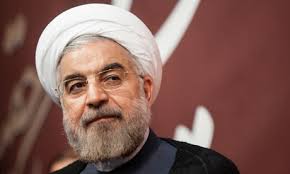 Hassan Rouhani is set to officially replace Mahmoud Ahmadinejad as president of Iran.
Hassan Rouhani is set to officially replace Mahmoud Ahmadinejad as president of Iran.
Mr Rouhani’s election will be endorsed by the country’s Supreme Leader Ayatollah Ali Khamenei at a ceremony in the capital, Tehran.
The cleric, who won the presidential poll in June, has promised reform and to end Iran’s international isolation.
While his term officially starts on Saturday, his public inauguration will take place on Sunday.
The 64-year-old is a former nuclear negotiator for Iran and was an Islamic activist before the country’s 1979 Revolution.
Final say
He has the support of Iran’s reform movement, which wants the new president to enact real change – including the release political prisoners and the lifting of international sanctions that have hurt the country’s economy.
But while he may be taking over as president, he will not be Iran’s main decision maker, says the BBC’s Iran correspondent James Reynolds in London.
In the Islamic Republic, it is the Supreme Leader – not the president – who has the final say, our correspondent adds.
The day before he took office, Mr Rouhani said Israeli occupation was an “old wound on the body of the Islamic world”, as his country marked its annual Jerusalem (Quds) Day.
His remarks echo those of other Iranian leaders on the day dedicated to supporting the Palestinians and denouncing Israel.
Iran has denied Israel’s right to exist since the 1979 Islamic revolution.
In his last interview before stepping aside on Friday, Mr Ahmadinejad also attacked Israel, warning of “storm brewing” in the region that would uproot Zionism, according to AFP news agency.
Many Iranians believe Mr Ahmadinejad, elected twice in controversial elections, has put Iran on the path to economic ruin and confrontation with the outside world.
BBC

Leave a Reply
You must be logged in to post a comment.